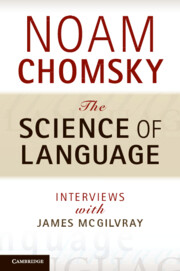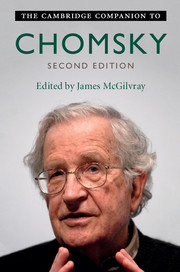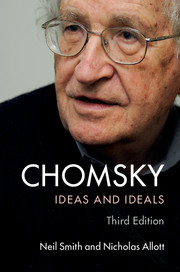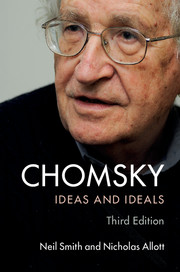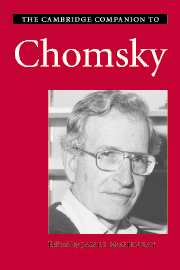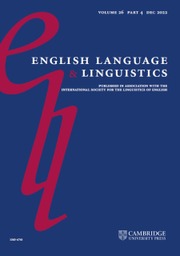The Science of Language
Noam Chomsky is one of the most influential thinkers of our time, yet his views are often misunderstood. In this previously unpublished series of interviews, Chomsky discusses his iconoclastic and important ideas concerning language, human nature and politics. In dialogue with James McGilvray, Professor of Philosophy at McGill University, Chomsky takes up a wide variety of topics – the nature of language, the philosophies of language and mind, morality and universality, science and common sense, and the evolution of language. McGilvray's extensive commentary helps make this incisive set of interviews accessible to a variety of readers. The volume is essential reading for those involved in the study of language and mind, as well as anyone with an interest in Chomsky's ideas.
- These interviews have never been published before and will be welcomed for the insight they give into Chomsky's current thinking
- Wide-ranging, covering a variety of topics central to Chomsky's work, including the philosophies of language and mind and the nature of language and evolution
- Offers unique access to Chomsky's important views on the role of language in human nature and human nature in politics
Reviews & endorsements
'This clear and relaxed conversation, illuminating for specialists and newcomers, locates Chomsky's linguistics within his larger conception of human inquiry. McGilvray asks the right questions and offers helpful editorial supplements.' Paul M. Pietroski, University of Maryland
'Noam Chomsky has long been recognized as a founding genius of modern linguistics. These compelling and carefully organized interviews illustrate why … The book is truly exceptional in affording an accessible and readable introduction to Chomsky's broad-based and cutting-edge theorizing. A must-read!' Robert J. Stainton, University of Western Ontario
'An indispensable presentation, in engaging interview form, of Noam Chomsky's evolving ideas about the scientific investigation of language and human nature, with illuminating explication by interviewer James McGilvray.' Howard Lasnik, University of Maryland
'By bringing the two sides of Chomsky's career together in ways that his specialist works have eschewed, the conversations recorded in (this book) remind us that the 'Chomsky problem' is no individual foible, but the deepest ideological contradiction of our age.' The Times Literary Supplement
Product details
No date availableHardback
9781107016378
328 pages
232 × 155 × 16 mm
0.64kg
Table of Contents
- Introduction
- Part I. The Science of Language and Mind:
- 1. Language, function, communication: language and the use of language
- 2. On a formal theory of language and its accommodation to biology. The distinctive nature of human concepts
- 3. Representation and computation
- 4. More on human concepts
- 5. Reflections on the study of language
- 6. Parameters, canalization, innateness, universal grammar
- 7. Development, master/control genes, etc.
- 8. Perfection and design (interview 20 January 2009)
- 9. Universal grammar and simplicity
- 10. On some intellectual ailments of scientists
- 11. The place of language in the mind
- 12. Chomsky's intellectual contributions
- 13. Simplicity and its role in Chomsky's work
- 14. Chomsky and Nelson Goodman
- Part II. Human Nature and its Study:
- 15. Chomsky on human nature and human understanding
- 16. Human nature and evolution: thoughts on sociobiology and evolutionary psychology
- 17. Human nature again
- 18. Morality and universalization
- 19. Optimism and grounds for it
- 20. Language, agency, common sense, and science
- 21. Philosophers and their roles
- 22. Biophysical limitations on understanding
- 23. Epistemology and biological limits
- 24. Studies of mind and behavior and their limitations
- 25. Linguistics and politics.

